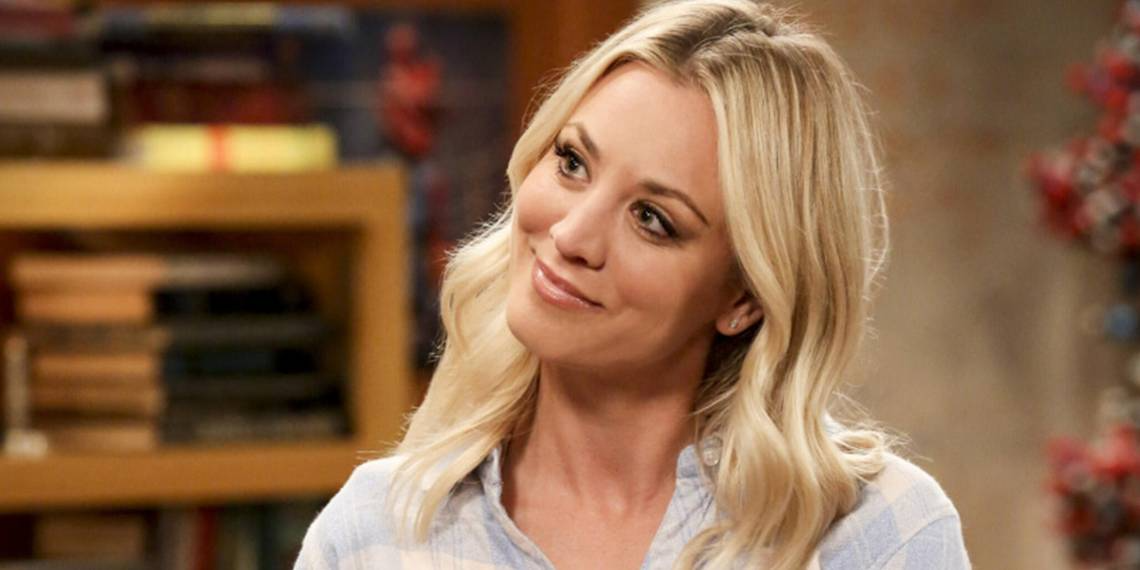
The Big Bang Theory has become one of the most beloved sitcoms of all time. Its unique blend of nerd culture, quirky characters, and heartfelt moments made it a hit, running for 12 seasons and leaving a lasting impact on TV. But what if we told you that one of the most crucial elements that helped the show achieve its success was a drastic change in casting—specifically, the recasting of Penny?
Many fans may not know that Penny, one of the central characters, was originally played by a different actress during the show’s pilot. This change would prove to be a game-changer for the entire show, and The Big Bang Theory likely wouldn’t have reached the heights it did if the original Penny had remained.
Let’s explore why this switch was so vital and how the character of Penny, as portrayed by Kaley Cuoco, became the cornerstone of the show’s success.
Who Was the Original Penny and Why Was She Recast?
The Early Days of The Big Bang Theory
When The Big Bang Theory was first in development, it was a bold idea. The concept—focusing on a group of geeky scientists and their interaction with the “normal” world—was unconventional, to say the least. The show’s creator, Chuck Lorre, needed a character who could act as the anchor, balancing out the eccentricities of the geeky characters and providing a relatable point of entry for the audience.
In the original pilot, the character of Penny, who would later become the girlfriend of Leonard Hofstadter (Johnny Galecki), was played by actress Amanda Walsh. However, this version of Penny didn’t resonate with test audiences. Something was off. Penny, in this first iteration, felt too one-dimensional and didn’t have the spark needed to drive the show’s humor and charm.
Kaley Cuoco’s Penny: The Game-Changer
When the show was picked up, the character of Penny was recast, and Kaley Cuoco took on the role. This decision turned out to be one of the most important moves in the show’s history. Cuoco’s interpretation of Penny brought a level of depth, humor, and charm that audiences instantly connected with. Penny, as played by Cuoco, wasn’t just the “girl next door” or a romantic interest for Leonard—she became a fully realized character who could hold her own alongside the show’s neurotic scientists.
What made Cuoco’s Penny so special? Let’s break it down.
What Made Kaley Cuoco’s Penny So Iconic?
The Perfect Balance of Relatability and Charm
Kaley Cuoco’s Penny was relatable in a way the original version wasn’t. She was the “everywoman” who, while living in the same apartment complex as the geeky scientists, still had dreams, desires, and a tough-as-nails attitude. She wasn’t afraid to speak her mind, but she also had a vulnerability that made her likable.
Her character quickly became the heart of the show—acting as a bridge between the “normal” world and the world of science geeks. Penny wasn’t just a love interest for Leonard. She was the glue that kept the show’s social dynamics in balance, giving fans someone they could root for from the very first episode.
The Chemistry with the Cast
It’s no secret that The Big Bang Theory became a success due to its ensemble cast. But Penny’s chemistry with the rest of the gang played a huge part in the show’s appeal. Her relationship with Sheldon, played by Jim Parsons, is a fan favorite. The two had a sibling-like dynamic, with Sheldon’s unfiltered bluntness often clashing humorously with Penny’s no-nonsense attitude.
Penny’s interactions with Leonard were another cornerstone of the show. Her witty comebacks and sarcastic humor kept their relationship dynamic fresh and relatable, while her growth over the seasons—from waitress to pharmaceutical sales rep—showed that Penny had depth and ambition, which allowed her character to evolve.
Penny’s Evolution Throughout the Show
One of the key reasons Penny worked as the show’s anchor was her character development. Over 12 seasons, Penny evolved into one of the most well-rounded characters on the show. She wasn’t just the love interest or comic relief—she grew, both personally and professionally, allowing her to play a pivotal role in many of the show’s most important storylines.
Penny’s journey from struggling actress and waitress to a successful pharmaceutical saleswoman was inspiring. Her evolving relationship with Leonard, her complex friendship with Amy and Bernadette, and her unshakeable loyalty to her friends made her a multi-dimensional character who felt real. Fans watched her go from a character with little direction in life to someone who was both career-driven and committed to her relationships.

Why the Original Penny Would Have Fallen Short
Lack of Depth in the Early Version
The original Penny, played by Amanda Walsh, wasn’t able to connect with the audience in the same way Cuoco’s portrayal did. While Penny’s character had the potential to be an interesting point of contrast to the male leads, the early version felt too stereotypical. The character lacked the complexity and charm that Kaley Cuoco brought to the role.
In fact, one of the biggest challenges with the original Penny was her underdevelopment. She didn’t have the humorous, sarcastic edge that Cuoco’s version would eventually carry. Without this, it’s hard to imagine how the show could have built the emotional connections that made The Big Bang Theory so successful.
Penny’s Importance to the Show’s Tone
Penny wasn’t just an accessory to the male characters—she was an essential part of the show’s tone. Her humor and the chemistry she had with Sheldon, Leonard, and the others were crucial in balancing out the sometimes overwhelming science-based humor of the show. She grounded the series, making it more relatable to the wider audience.
Without the transformation of Penny, it’s likely the show would have been far more niche, catering only to the geek crowd. Penny’s relatability allowed the show to bridge the gap and become a mainstream success.
The Impact of Penny’s Recasting on The Big Bang Theory’s Success
Wider Appeal to Diverse Audiences
Penny’s new character arc made The Big Bang Theory more accessible to a diverse audience. Her role as the everywoman contrasted perfectly with the eccentricities of Sheldon and the rest of the gang, drawing in viewers who might have been otherwise turned off by the more scientifically heavy aspects of the show.
Establishing a Strong Emotional Core
The recasting of Penny gave the show an emotional core that was essential for its long-term success. Penny wasn’t just a love interest for Leonard; she was the person who grounded him, and eventually, all the characters, with her unshakeable support. She helped viewers connect emotionally, making the show not just funny, but also heartfelt.
Keeping the Show Fresh and Engaging
Penny’s ability to evolve alongside the show kept it fresh throughout the years. Her character didn’t stagnate, and neither did the show. With Penny constantly growing, the show stayed relevant, keeping fans engaged even as it entered its later seasons.
Conclusion: Penny’s Transformation Was Key to The Big Bang Theory’s Success
In the end, The Big Bang Theory was a massive success because it balanced quirky humor with genuine emotion. A huge part of that success was due to the transformation of Penny, thanks to Kaley Cuoco’s incredible performance. If the show had kept the original Penny, it’s unlikely it would have become the cultural phenomenon that it did. Her relatability, charm, and emotional depth helped solidify the show’s position in television history.
Penny wasn’t just a character on a sitcom—she was the heartbeat of the show, bridging the gap between the nerds and the audience. Without her, The Big Bang Theory might not have been as enduring or beloved as it is today.
FAQs
-
Who played the original Penny in The Big Bang Theory?
- The original Penny was played by actress Amanda Walsh. However, she was replaced by Kaley Cuoco after the pilot.
-
Why was Penny recast in The Big Bang Theory?
- The original Penny didn’t resonate well with test audiences, leading to a recasting to bring in a more relatable and dynamic character.
-
How did Kaley Cuoco’s Penny differ from the original?
- Cuoco’s Penny was more relatable, charming, and had better chemistry with the cast, especially with Sheldon and Leonard.
-
What role did Penny play in The Big Bang Theory’s success?
- Penny was the emotional core of the show, balancing the eccentric characters and helping to connect with a broader audience.
-
Could The Big Bang Theory have succeeded without the change in Penny’s character?
- It’s highly unlikely. Penny’s transformation added depth and relatability that
